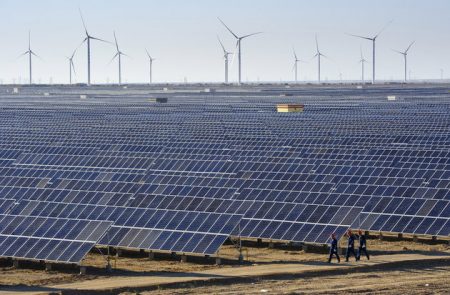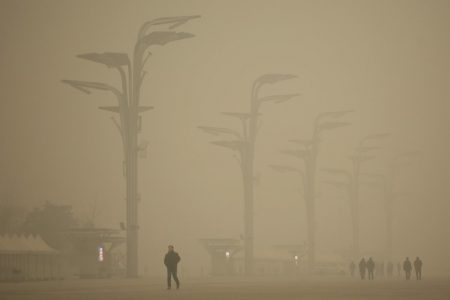January 5, 2017 – In the last week China announced it plans to spend 2.5 trillion Yuan ($361 billion U.S.) on renewable power generation between now and 2020, creating 13 million new jobs. The goal, to have enough installed capacity to cover 50% of net new electrical power generation by 2020. By that date renewables in China will produce 15% of the country’s energy needs, replacing 580 million tons of coal annually. At current costs for solar power plants, the total investment is estimated at equaling 1,000 new solar plant sites. But since the cost of building solar continues to drop China may get even more bang for their bite.

Despite the renewable investment China continues to be the world’s largest consumer of coal and the single largest contributor to global greenhouse gases. The latest coal announcement doesn’t change China’s coal addiction. Although the country announced last week that it plans to cut capacity from inefficient and outdated coal mines by 800 million tons per year, it forecasts target output to increase to 3.9 billion tons in 2020, up from 3.75 billion in 2015.
China continues to ramp up power capacity. The goal is to hit 7.2 trillion kilowatt hours by 2020, increasing output by between 3.6 and 4.8% annually. Coal remains central to the power mix and China’s air quality continues to suffer because of it. That and the increased amount of vehicles that now jam China’s urban environments.
Last month air pollution across northern China blanketed the cities of Beijing, Tianjin, Hebei, Shandong, Henan and Shanxi. Visibility in Beijing was reduced to 200 meters (656 feet). Smog made it impossible for airplanes to take off and land. The state issued a red alert to try and keep cars off the road, mandated factories to temporarily shut down, and even announced school cancellations.
Air pollution continues to be a leading cause of death in China amounting to 17% of annual national totals. That’s equal to 4,400 dying each day because of bad air. Recently Premier Li Keqiang committed the government to ensure “good air quality” for 80% of the year. Maybe that means 800 fewer deaths per day because of China’s addiction to coal.










